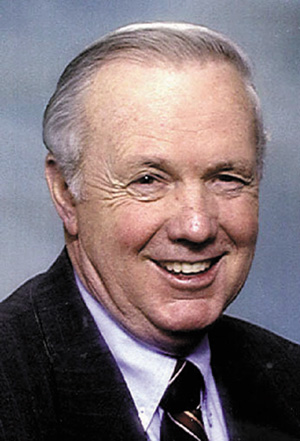No. 1189 -- WHAT MAKES AN IDEA TAKE OFF?
No. 1189
Jim Davidson...NEWSPAPER COLUMN
WHAT MAKES AN IDEA TAKE OFF?
It has often been said, and rightfully so, that the world runs on good ideas. If you will give this some thought, I believe you will agree that every single invention, product or service in the history of the world was at one time just an idea in the mind of some human being. As I began to think about this, I asked myself the questions, “What makes an idea take off? Why are some really great ideas short circuited and never get off the ground, while others defy all odds and become very successful, useful and productive?”
To answer my own questions, I have been on a journey of discovery for the past several days, and it has been truly exciting. You know, when God created the human mind He did a wonderful thing. I am grateful to Him. As I thought about this, I recalled the one invention that really started it all. The invention of the printing press by Johann Gutenberg in the late 1430s is truly one of the most important inventions of our time. If you doubt that this is true, just think of what life would be like to today without the existence of printed material in all of its forms.
Of course, you realize that something had to exist before the printing press could be invented. This was the existence of letters cut on blocks of wood that would later become a “movable type machine.” Now this process, my friend, is the forerunner for all ideas, because everything we see around us today was piggy-backed from some earlier model or product. From this point I did a little research on some of the other important forerunners, such as the automobile, the steam engine and the computer. I am sure you can think of many, many other examples.
When it comes to the automobile, many people think this was invented by Henry Ford. Not so, as this honor goes to Karl Benz, a German who invented the automobile in 1885. The computer was invented by Englishman Charles Babbage in the early 19th century. He is known as the father of computing. The first programmable computer, the Z 1, was created by German Konrad Zuse in his parent’s living room, circa 1936-38. Of course, we know that computers have come a long, long way since then.
Now, back to my original question, “What makes an idea take off?” Well, thanks to the American free enterprise system, we have a political system and an economic system in our country that allows private citizens to create products and services and sell them for a profit to improve their (our) standard of living. The key to business and economic success comes down to a simple concept -- FIND A NEED AND FILL IT. Whether it’s an idea or a product, we are all selling something and there must first be a need or a perceived need because NO NEED – NO SALE. When we can do a better job than our competition and earn a profit, we will be successful, at least financially.
Ever hear of Walmart? This company is now the largest in the world, and started when the founder, Sam Walton, lost his lease in Newport, Arkansas, and moved to Bentonville, Arkansas, in 1950. There he started a new company, Walton’s Five & Dime. The first Walmart opened in 1962 in nearby Rogers.
Do you have a good idea that you would like to develop? Well, thank God you live in the greatest nation in the world where you have freedom and opportunity to try it out. This is where the rubber meets the road. Good luck.
---
(Editor’s Note: JIM DAVIDSON is an author, public speaker, syndicated columnist and founder of the Bookcase for Every Child project. Since its inception in 1995, Jim’s column has been self-syndicated to over 375 newspapers in 35 states, making it one of the most successful in the history of American journalism.)
